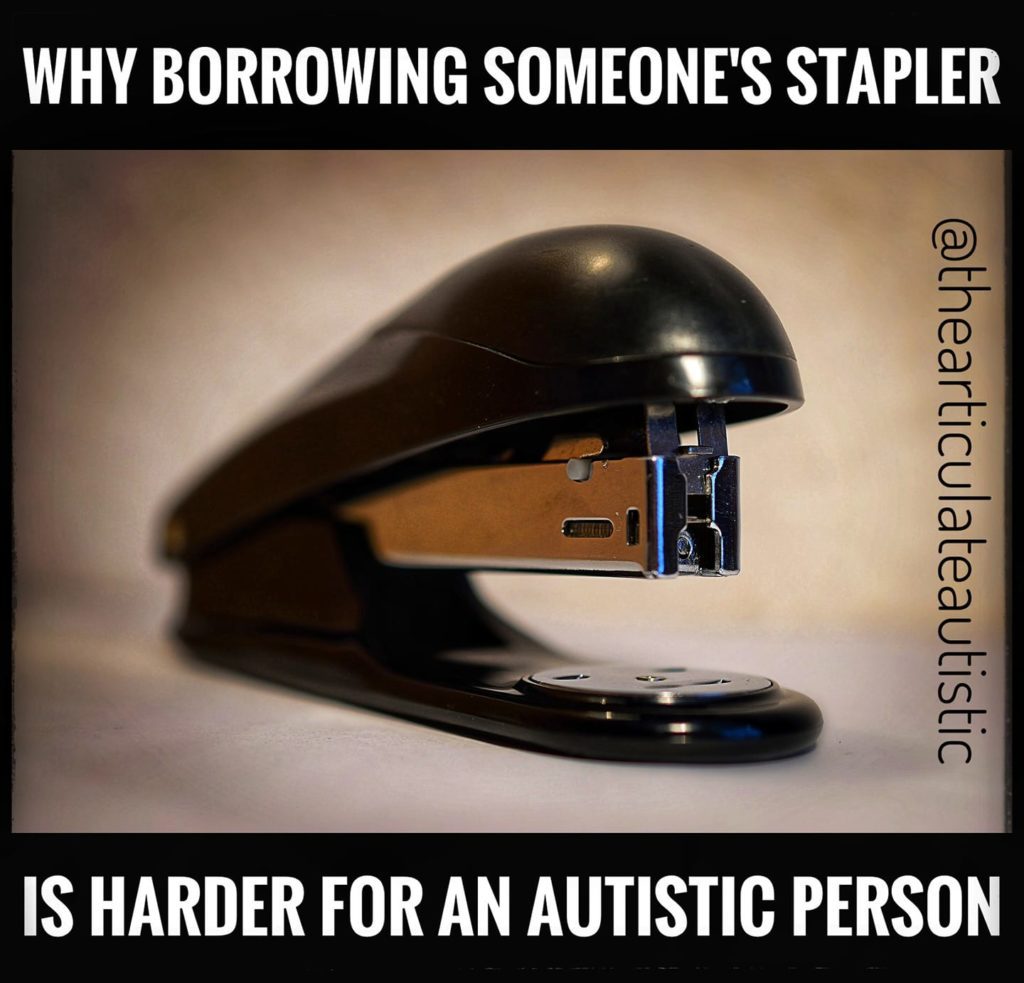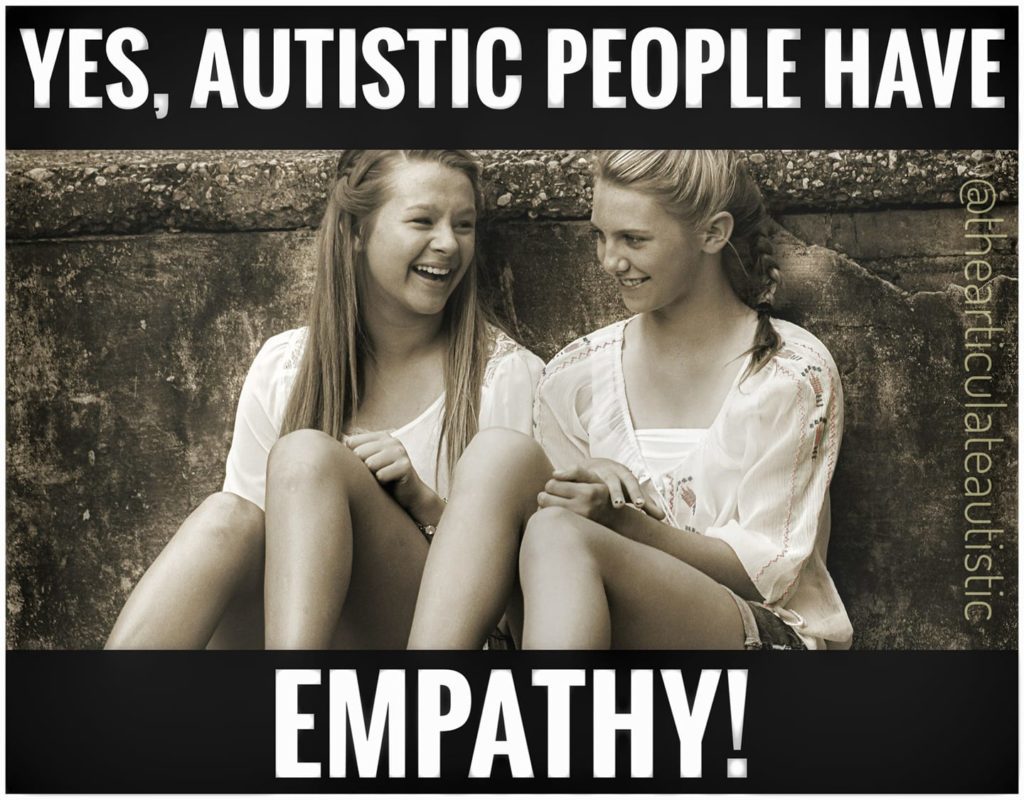Why Borrowing Someone’s Stapler Is Harder for an Autistic Person

I promise I’m going somewhere with this! 😄
OK, so if you’ve ever attended public or private school or had an office job, you’ll be familiar with this scenario:
You’ve got a bunch of papers on your desk, and you need to staple them together. You see your classmate or co-worker has a stapler on their desk, and you ask if you can borrow it.
Nope. Wrong move. The person may hand over the office supply in question, but you’ve just made a social error.
You’re supposed to say “Hi. How are you?” “How are things going with the kids? Did Johnny get through that tonsil surgery OK? Oh, by the way, can I borrow your stapler?”
It’s not always a stapler, but it’s something tangible you need from someone and, preferably, RIGHT NOW would be a good time to get it.
The thing is, neurotypical people expect a bit of small talk to ease into asking them any type of favor. (Think of it as foreplay. 😉)
(Article continues below.)
The best way to improve communication with your autistic loved one is to understand how your autistic loved one’s mind works! Intentions, motivations, and personal expressions (facial expressions or lack thereof, body language, etc.), are often quite different in autistic people than they are in neurotypical people.
Experience a better understanding of your autistic loved one by reading books about life from an autistic perspective as well as stories that feature autistic characters. You’ll have so many “Ah ha!” moments and start seeing your autistic loved one in a different light (and you’ll have a better understanding of their behaviors, which you may have been misinterpreting up until now).
Books I recommend for a better understanding of your autistic loved one:
So, while you may not actually have to ask about Johnny’s tonsil surgery, you are expected to at least throw a “Hello” in their general direction before making off with their desk supplies.
See, most autistics see what they want or need and ask for it directly. No fuss. No muss. Neurotypical people are more roundabout in their approach. Small talk is an important way to reestablish connection and rapport before asking a favor, otherwise such requests feel too direct and rude.
So, for us, asking for even a small favor can be a challenge because we need what we need when we need it, and the small talk just gets in our way and confuses us because we have our mind on finishing a task and cannot easily “switch gears” from ‘work brain’ to ‘social brain’ and back again that quickly. That’s two different trains for us with no connecting track!
Plus, the interruption of small talk can make us completely forget what we’re doing, and we may miss an important deadline all because we stopped to listen to a story about a co-worker’s beach vacation! 😯
The way our brains process information can make it appear as though we are being rude on purpose or out of malice or event hat we completely lack empathy. Neither one of these misconceptions is true! Click on the photos below to learn more about both of these topics in detail.
Follow me on Instagram.
Want downloadable, PDF-format copies of these blog posts to print and use with your loved ones or small class? Click here to become a Patreon supporter!










I love your article. The truth is, I wear a mask all day. I feel like I am lying to every one all the time. I get hung up on every change and left out detail, fighting not to cry in front of my class and family. I am accused of being anti-social by parents and teachers, and dishonest, manipulating, and un empathetic by every one else. It is so extremely exhausting. I go home and rock/cry my self to sleep most days. My parents ‘help’ by ‘tip-toeing’ around me’, trying not to get me upset, but that just makes it worse somehow. It helps so much that their are other people like this some were.